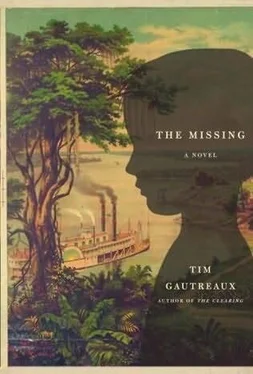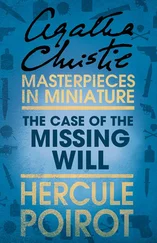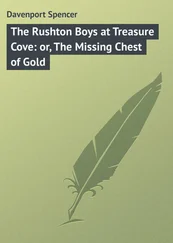“Mais oui, monsieur.” She bent over as another spasm traveled up her arm.
He listened to her shuddering intake of breath and stared at the flames until her pain seemed to lessen. Then he told her he would find her a doctor, though he had no idea of where to start looking. He sat down and comforted her as best he could, asking her to talk about the vanished people of her village.
Staring at him intently, she asked, “Combien de temps avez vous été en France?”
“Je suis arrivé le jour la guerre était finie.”
She sniffed and gave him a fragment of a rueful smile. “ Eh bien, Monsieur Sam, votre nom devrait être Chanceux.”
“My name should be Lucky? Me? I don’t know about that.”
He heard a sputtering engine and stood as a muddy, open car with British markings came up the road, a one-armed captain sitting behind the driver in the wide rear seat. The captain leaned out and observed the girl now rocking back and forth on the wall, then the blown apart building, then Sam, who saluted. The captain made a face and said, as if to no one, “American.”
“Yes, sir.”
“Was anyone else hurt?”
“Not that I could find, sir.”
“I see. Shooting at pigeons, I suppose?”
“No, sir. We were trying to detonate a pile of artillery rounds.”
The captain studied him for a long time, as if trying to gauge the workings of a mind accustomed to vast, empty American spaces where one could fire a howitzer all day long and hit nothing of consequence.
“Sir, the little girl was in the house alone and I think she’s probably an orphan. What can we do for her?”
The captain seemed amazed by this question. “Private, how long have you been over here?”
Sam shrugged. “Maybe a couple months.” He looked helplessly around, feeling bereft of some essential common experience. The driver sniffed.
“I see.” The nub of the captain’s arm twitched under the pinned sleeve, a phantom motion. “Do you know how many orphans are wandering the roads? Living in what forests are left? They are roaming about looking for relatives who are already dealing with children from every other branch of the family. Many of them wind up in orphanages. Do you really want her in one of those?”
“I don’t know, sir.”
He looked again at the girl. “How bad is her hand?”
“She’s got a finger off.”
“Clean wound?”
“Yes, sir.”
“My advice is to leave her here, then, if that’s what she wants. Somebody she knows will drift back, and she can fit in with them. This is my district. Tell her she can walk the five miles to Pilars to see the army medic if her hand doesn’t heal.”
“Leave her?”
The captain raised his chin and looked around. “There, that house has a roof on it. She can stay there.” He tapped the driver on the shoulder, and the big car heaved up out of a rut and left them.
Sam looked down at the girl and asked if she wanted to stay in that house.
“C’est la maison de mon oncle,” she said. “Il est mort.”
He asked if it would frighten her to stay in the house of her dead uncle.
She looked up at him with her pained eyes and said that a live person was more frightening than a dead one. It was a live person who blew up her house.
He looked again at the burning thatch roof. “C’était un accident,” he said. “La guerre est finie.”
“Non,” she said. The girl told him that it was not over for her, and she began weeping again, thrusting her bloody bandage up at him.
He sat down next to her on the stone wall and pulled her head against his chest. She smelled unwashed, and a louse came up between his fingers, but he held her close, repeating “It’s over, it’s over,” as she shook her head, and keened, “Jamais, jamais pour moi.”
***
HE SPENT the rest of the day preparing the house, boarding up a blown-out window, remounting the front door, and as he worked he told her about his childhood, and where he lived now. He showed her how to make fires, though she assured him that she was wise to the chore, and he explained how to clean and rebandage her wound. When the daylight began to fade he told her he was sorry for what happened to the other house, and she gave him a worried look and asked if he was going to shoot his cannon again. He said no, that they’d made an experiment that had failed.
“Bon. Si la fusillade a enfin arrêté, peut-être mes voisins seront de retour.”
He set a plate on the rough kitchen table in front of her, and began rummaging for something to put on it, wondering how she would manage until someone showed up to help. She had lost everyone. He asked her if she knew how to read.
“J’étais la première dans ma classe,” she said, throwing her head up.
In a cabinet in another room he had found a small library, and he brought a few books out for her, setting them next to her plate. She brushed her dark hair back and picked one of them up. There was a translation of Dickens and another of Twain, and editions of Flaubert and Stendhal, names he didn’t recognize. “Peut-être ceux-ci peuvent t’aider à passer le temps.”
She opened the book with her bloody hand. “Monsieur Chanceux, ma mère m’a dit que le temps passe sans notre aide.”
***
THAT EVENING he rode the bay back to his unit, arriving well after dark and reporting what he’d discovered, that he’d left a child with candles and eight shriveled potatoes and some rations from the horse’s saddlebags. The men were glad the stray shell hadn’t done even more damage, but Sam saw nothing to be happy about. His uncle had taught him that what he did in life, good or bad, could seldom be undone.
The lieutenant pulled from his tunic a packet delivered a half hour earlier by motorcycle courier, then bent next to the truck out of the wind and tried to read a message by matchlight. “We were so busy waiting for you and sharing the excellent brandy with the poor motorcyclist that I forgot to read this.” After a moment, his head snapped up. “Well, it’s over.”
“What we got to blow up now?” Sam asked, holding his cup out to Robicheaux’s jug.
“Nothing.” The lieutenant threw the packet into the ruined truck and smiled all around. “Most teams have been ordered back to Paris. All cleanup has been ordered stopped, and for some reason our little group’s being sent to the south of France. Makes me wonder why they exiled us out here in the first place.”
“They had this fancy idea in their heads,” Sam said, feeling the brandy burn in his throat.
“What? An illusion, you mean?”
“Is that what they call it? I meant some general who’s never been out here had a fancy idea we could sweep up this place with a whisk broom and a dustpan. When you think about a problem for thirty seconds instead of a week like you should, you come up with one of those illusions you’re talking about.”
“Oh, sit down and have a drink,” the lieutenant told him.
Sam held out an open hand toward the battlefield. “Do you think I can come back and check on the little girl?”
“No, absolutely not. We have our orders.”
“What about later? On my leave?”
“We’re going a long ways away, and I’d bet straight home after that.”
“I have to see about her.”
The lieutenant took a swallow from a tin cup. “You’re not exactly a tourist over here. And you can’t pop some French kid into your knapsack for the trip home.” The brandy was making the lieutenant talkative and bold. He drained the cup. “I’m sorry, but she’ll have to take her chances like the rest of us.”
Читать дальше












